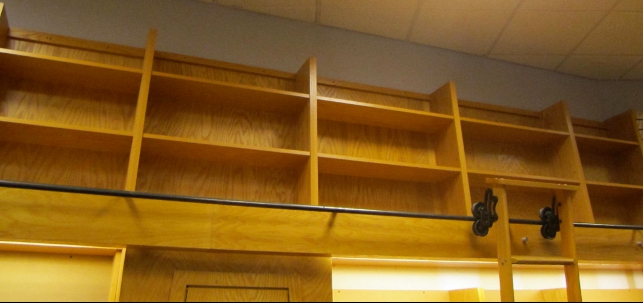THE COMPANY
Borders Books was founded in 1971 by Tom and Louis Borders while they were undergraduates at the University of Michigan. The first store, located in Ann Arbor, Michigan, tailored its inventory system to reflect the determined interests and trends within the community. The stores that followed, both nationally and internationally, used them same system to ensure profitability in each new community.
After two decades of gradual growth, the bookstore brand was bought by Kmart in an attempt to save their already floundering mall based Waldenbooks stores. Unfortunately, this goal was not accomplished and the Borders-Waldenbooks hybrid was sold in a stock-purchase plan and soon became known as Borders Group. Over the next two decades, Borders expanded internationally to Singapore, Europe, Australia and Malaysia.
In the early 2000s, Borders made efforts to keep up with the changing book industry. In an attempt to maintain profitability, they came to agreements with other companies such as Starbucks (more specifically their subsidiary, Seattle’s Best) and Paperchase, a stationary business. They even partnered with Amazon.com, using their platform to house their online marketplace.
By the late 2000s, however, Borders Group realized they would have to make some major changes in their business model if they hoped to stay afloat.
While the international stores were very successful initially, they were the first on the chopping block when Borders Group began having financial difficulties. By 2010, all of the international stores were sold or closed. In 2008, Borders ended their partnership with Amazon.com and launched their own online store. They also partnered with Kobo, Inc. in 2010 in an attempt to get into the eReader game.
Over the next few years, loans were given, payrolls were cut, positions were eliminated, and stores were closed. These actions may have been effective had they been taken earlier, but unfortunately Borders was not able to recover. Loans were repaid, stocks went up, stocks went down, more loans were taken, leadership was inconsistent, and they were ultimately unable to get back on their feet.
Sadly, in February of 2011 Borders filed for Chapter 11 bankruptcy in hopes of winning one last fight that would keep them in business. As we all know now, they never saw this victory. After rejecting a bid by Direct Brands to take over most of the stores, Borders Group filed for an auction that would be closed on July 17, 2011.
This looming date arrived, however, and Borders was still without a bidder.
So, on July 18th, 2011, Borders announced Chapter 7 bankruptcy and the remaining 300+ stores and 11,000
employees around the country were notified that their Borders Books and Music stores would be closing within
the next few months.

Thus, the Borders we knew and loved in its last decade was largely removed from its origins. Beginning as a small independent bookstore devoted to offering rare and used books, Borders soon grew into a international superstore owned by a diaspora of stockholders and constituents and collapsed after it had been pushed and pulled to exhaustion in all of these different directions.
As someone with absolutely no background in business, discovering this disjointed identity behind Borders was shocking for me. I had imagined Tom and Louis sitting in the top office of a Michigan skyscraper, relaxing, as appointed CEOs and management teams ran their family company.
Clearly, research into the history of Borders resulted in some disillusionment for me as I wrote Sold Everywhere But Borders.
But even knowing now what I didn’t know then, I still feel a connection and allegiance to the deceased company. Even though it wasn’t as simple as a family owned bookstore, it meant something personal to tens of thousands of people.
How many companies can say that about themselves?